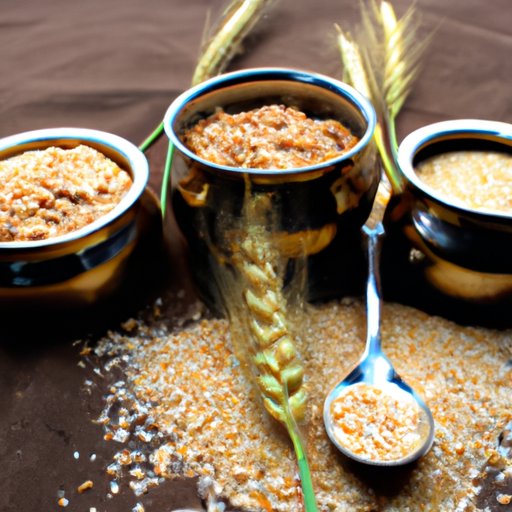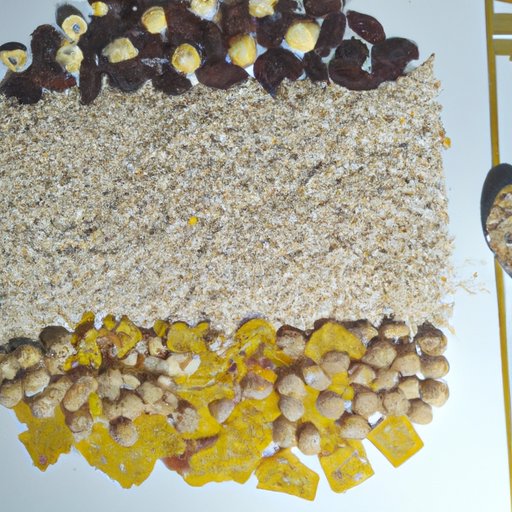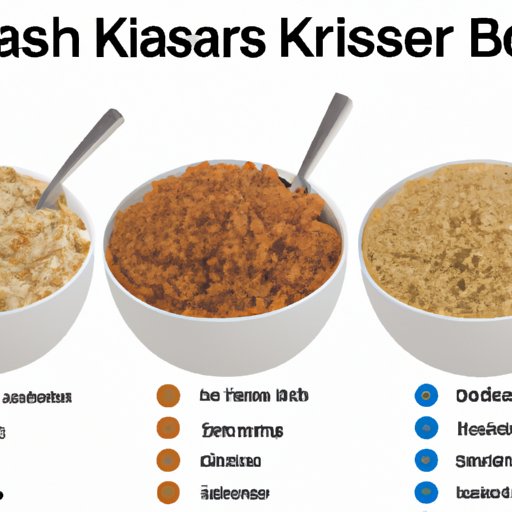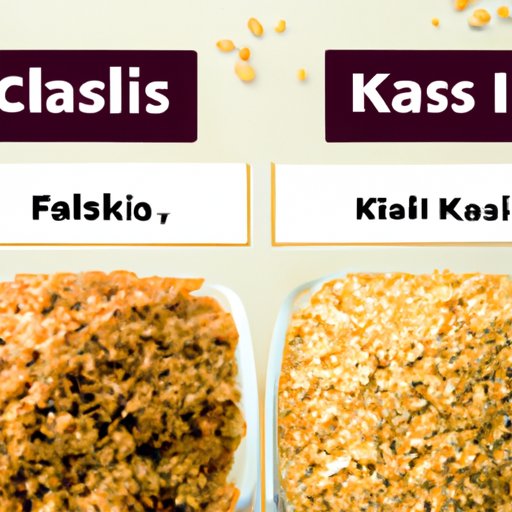Introduction
Kashi is a brand of breakfast foods that produces a wide range of cereals, bars and snacks. The company’s mission is to provide consumers with nutritious, natural and organic products that are made without artificial ingredients or preservatives. While many people view Kashi as a healthy choice for breakfast, it’s important to understand the nutritional benefits and potential risks before making an informed decision.

Exploring the Nutritional Benefits of Kashi Cereal
Kashi cereals are made from whole grains and plant-based ingredients like oats, wheat, barley and flaxseed. They are high in fiber and contain a variety of vitamins and minerals such as iron, zinc, magnesium, vitamin B6 and thiamin. Depending on the variety, Kashi cereals can also be a good source of protein, with some varieties providing up to 7 grams per serving.
The company makes several health claims regarding its products. These include that they are “all natural,” “made with whole grains” and “good source of fiber.” Although these statements may be true, it’s important to look at the overall nutritional profile of the product to determine whether or not it is truly healthy.
A study published in the Journal of Nutrition Education and Behavior compared the nutrient content of Kashi cereals to other popular breakfast choices. The researchers found that, compared to other cereals, Kashi cereals were higher in fiber and lower in sugar, sodium and fat. They concluded that Kashi cereals are a healthier option than many other breakfast foods.
Is Kashi Cereal a Healthy Choice for Breakfast?
When evaluating the nutritional value of Kashi cereals, there are both pros and cons to consider. On the plus side, Kashi cereals are high in fiber and contain several essential vitamins and minerals. Additionally, they are low in sugar, sodium and fat. On the downside, Kashi cereals can be high in calories and contain added sugar. It’s also important to note that Kashi cereals are not fortified with micronutrients like some other breakfast cereals.
Overall, Kashi cereals are generally considered to be a healthier choice than many other breakfast options. However, it’s important to read the nutrition facts label and ingredient list to make sure you’re getting the most nutritional bang for your buck.
Are Kashi Cereals a Healthy Option for Kids?
Kashi cereals can be a healthy option for kids, but it’s important to keep an eye on the amount of sugar and calories. Many Kashi cereals are high in calories and contain added sugars, so it’s important to read the nutrition facts label carefully. Additionally, some Kashi cereals contain artificial flavors, colors and preservatives, so it’s important to choose varieties that are free from these additives.
It’s also important to note that some Kashi cereals may contain allergens such as wheat, soy and nuts. If your child has food allergies or sensitivities, it’s best to avoid these varieties.

A Look at the Ingredients in Kashi Cereals
Kashi cereals are made from a variety of whole grains and plant-based ingredients, including oats, wheat, barley, flaxseed, quinoa and amaranth. Depending on the variety, Kashi cereals may also contain dried fruits, nuts and seeds. Common ingredients found in Kashi cereals include brown rice syrup, evaporated cane juice, corn syrup solids and maltodextrin.
In addition to these ingredients, Kashi cereals may also contain artificial flavors, colors and preservatives. It’s important to read the ingredient list carefully to make sure that the variety you choose does not contain any potential allergens or additives.

How Kashi Cereal Compares to Other Breakfast Options
When comparing Kashi cereals to other breakfast options, it’s important to look at the overall nutritional value. Kashi cereals are typically high in fiber and contain several vitamins and minerals. However, they can also be high in calories and contain added sugars. When compared to other breakfast options, Kashi cereals may not always be the healthiest choice.
In terms of cost, Kashi cereals are generally more expensive than other breakfast cereals. However, they are often cheaper than prepared breakfast items like smoothies and breakfast sandwiches.
Examining the Health Claims of Kashi Cereal Products
Kashi makes several health claims regarding its products, including that they are “all natural,” “made with whole grains” and “good source of fiber.” While these statements may be true, it’s important to look at the overall nutritional profile of the product to determine whether or not it is truly healthy.
A study published in the journal Nutrition Today evaluated the validity of health claims made by Kashi. The researchers found that, while some of the claims were accurate, others were misleading. For example, the claim that Kashi cereals are “all natural” was not supported by the evidence, as some products contained artificial flavors, colors and preservatives.
Conclusion
Overall, Kashi cereals can be a healthy choice for breakfast. They are high in fiber and contain several essential vitamins and minerals. However, it’s important to look at the overall nutritional profile of the product to determine whether or not it is truly healthy. Additionally, some Kashi cereals contain artificial flavors, colors and preservatives, so it’s important to choose varieties that are free from these additives.
When choosing a healthy breakfast option, it’s important to consider the nutritional value, cost and potential allergens. Kashi cereals can be a nutritious and convenient option, but it’s important to read the nutrition facts label and ingredient list carefully to ensure you’re getting the most nutritional bang for your buck.
(Note: Is this article not meeting your expectations? Do you have knowledge or insights to share? Unlock new opportunities and expand your reach by joining our authors team. Click Registration to join us and share your expertise with our readers.)
